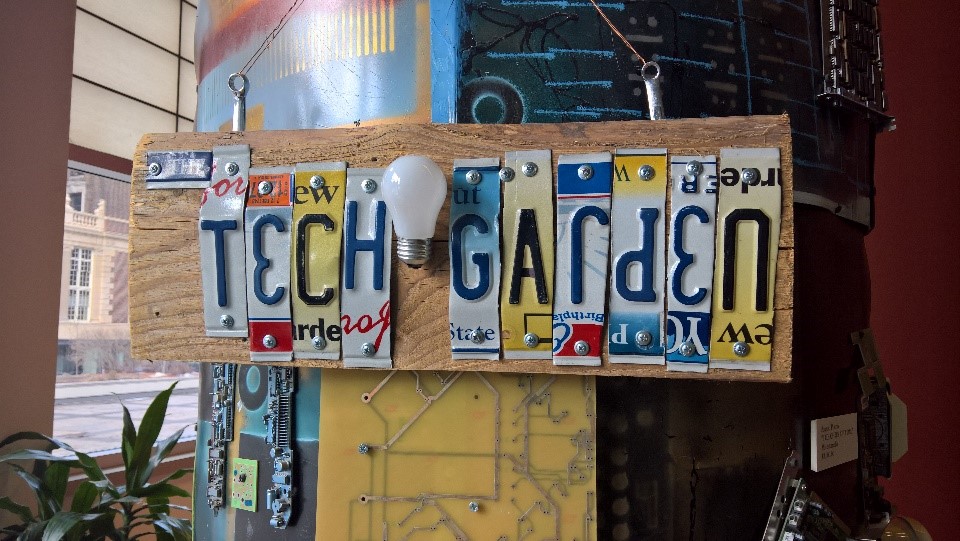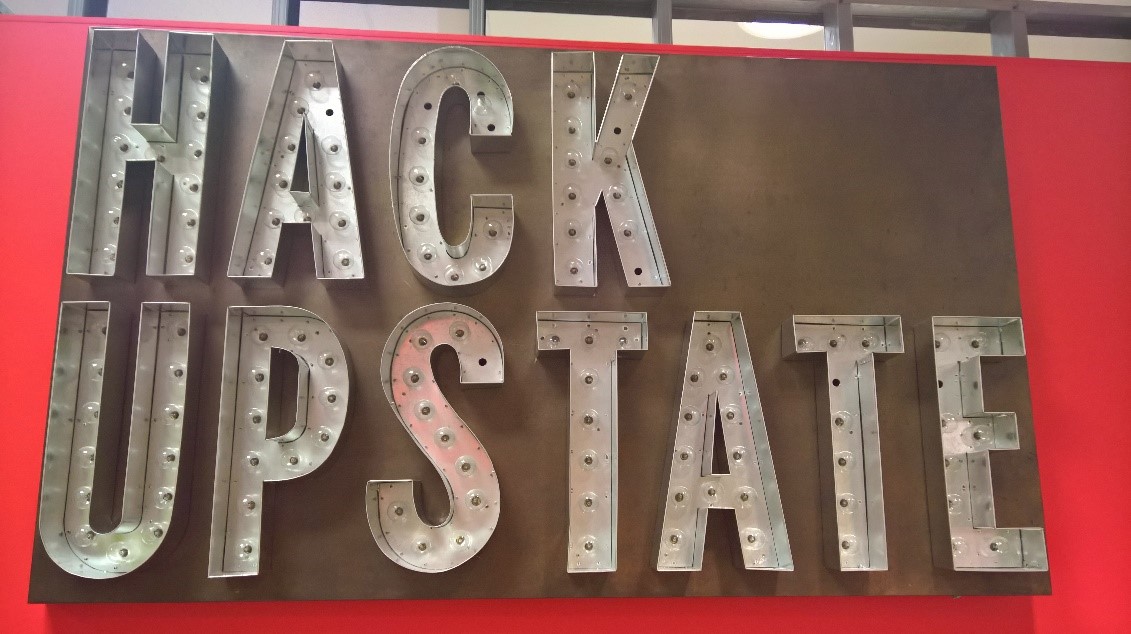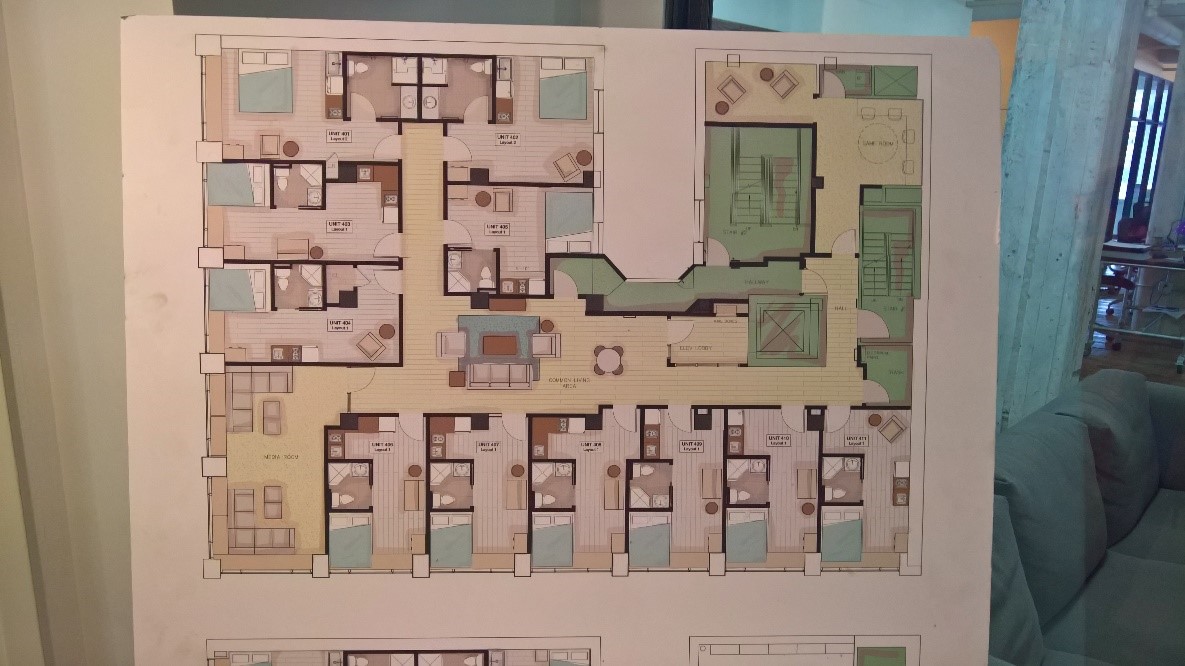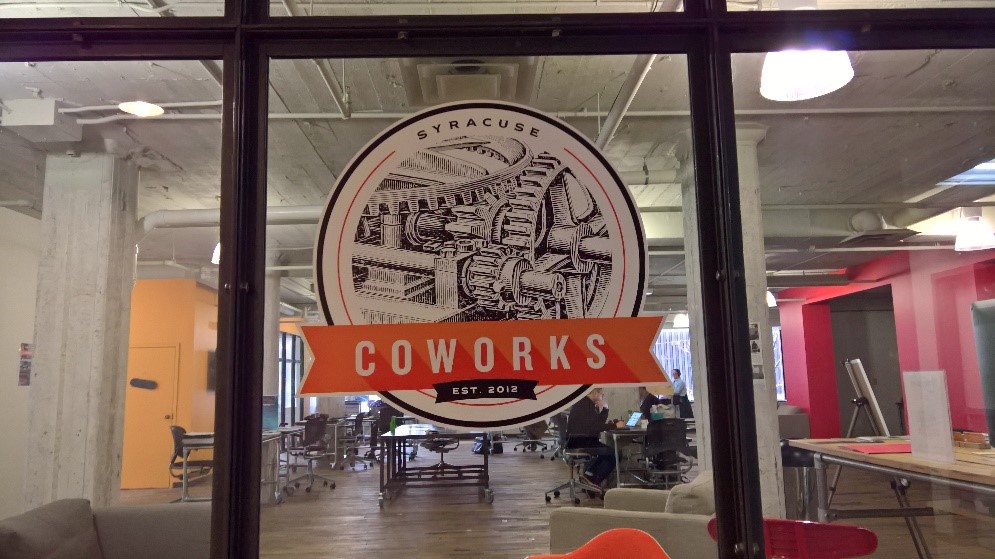 By Matthew K. Pelkey
By Matthew K. Pelkey
Upstate’s startup ecosystem is booming. Our office is based in Buffalo, NY, but I recently had the pleasure of touring Syracuse’s startup scene and met with Nasir Ali from Upstate Venture Connect and Seed Capital Fund of CNY. I started the day with lunch in the beautiful and historic Armory Square, followed by tours of co-working spaces, stopped in to chat with the folks at Genius NY, had coffee with some finance professionals, and ate dinner at the newly renovated Syracuse Hotel—a renovation which rivals that of one of Buffalo’s most symbolic retreats, the Hotel Lafayette. Suffice it to say, it was a busy day, with so much to see in Syracuse, much of which mirrors similar developments being made in Buffalo and throughout Upstate.
 Lobby of the Hotel Syracuse
Lobby of the Hotel Syracuse
Syracuse has its challenges, and in many ways, cities like Buffalo are far better-positioned to ensure sustainable growth for our future generations. I firmly believe that every community in Upstate New York can—and should—learn from one another to create a thriving, regional ecosystem. After all, while each community is unique, we all face similar challenges and legacies, from a thriving manufacturing past, now relegated to memories and inspiration. Here are a few takeaways that we can all learn from across Upstate New York’s startup ecosystem.

Collaboration. Startup ecosystems are built on and driven by collaboration. This is probably something most will agree upon, but the practical application is much more difficult. Working in silos don’t merge well with other silos. Syracuse benefited from competing chambers of commerce merging and dedicated resources to growing the entrepreneurial ecosystem. This was what led to the creation of the Tech Garden—a collaborative, creative incubator space supported by community and business stakeholders where a startup can flourish. Tech Garden was backed by a venture capital fund aimed to support businesses as they grow. Undoubtedly, this collaboration could likely be seen as a result of Carrier—Syracuse’s largest employer—leaving town. But, as you walk through downtown Syracuse, you see hope and growth from companies that started in the Tech Garden. The Tech Garden now not only grows businesses, but shares space with the business competitions Genius NY, and Hack Upstate. Collaboration is a key component to the success of many businesses and should be a sound roadmap for the rest of us.

Density. Walk around downtown Syracuse and it feels considerably different from somewhere like Buffalo. Buffalo encompasses nearly twice the geographical footprint as Syracuse. And although Syracuse is considerably smaller, walking through downtown, the differences between the two cities and results of development are apparent. Syracuse is walkable; it’s architecture is connected to its streets. Its successful startups take up home in storefronts and renovated industrial buildings that are readily visible. Buffalo too has many of these things, but it is much more difficult to take this all in at the same time. Growth begets more growth, and when you are inherently a denser city, reaching a critical mass (or at least the perception of a critical mass) has far fewer hurdles.
 Floorplan for Syracuse co-live space at Common Space
Floorplan for Syracuse co-live space at Common Space
Collisions. No, I don’t mean collisions as in automobiles – I am referring to the collision of ideas between people. Co-working spaces are hardly a new or unique concept. It seems that every city in Upstate New York has at least one. But co-living spaces—that is a unique concept. Indeed, one thing that struck me about Syracuse is the effort that has been put into creating residential space for entrepreneurs and young professionals—dubbed co-living spaces. Common Space, which happens to be conveniently located above Syracuse CoWorks, is a fascinating concept. It highlights an area that we in Buffalo have not yet addressed—residential housing for the entrepreneurial ecosystem. Common Space offers affordable housing and an environment that allows for the collision of ideas (both social and entrepreneurial) outside of the workplace. Living quarters offer high-end social spaces (lounge, entertainment room, library, kitchen, coffee room, rooftop patio) to allow workaholics to remain part of a community, even if they are working 18 hours a day (think high-end dorm but one that doesn’t bring back nightmares from freshman year). The space is innovative, creative, and most important, it was warm, welcoming and conducive to the entrepreneurs’ growth of their startups.

Admittedly the space is not for everyone, but young professionals, entrepreneurs and even those that travel often for work call the Common Space their home, call their fellow entrepreneurs neighbors, and also have some fun. An ecosystem should be invested socially and professionally to create a culture for entrepreneurs.
The parallels between Buffalo and Syracuse are numerous, as each city works to cultivate viable ecosystems for startups to become established, grow and thrive. A visit to Syracuse meant reflection on what Buffalo is doing well, and also inspiration as to new avenues we can explore to encourage and support small business growth.
Lastly, while you’re in Syracuse, make sure to grab lunch at Lemon Grass thai restaurant and bistro. And if you still happen to be there seven hours later, enjoy a cocktail and dinner at Eleven Waters in the Hotel Syracuse. You won’t be disappointed!